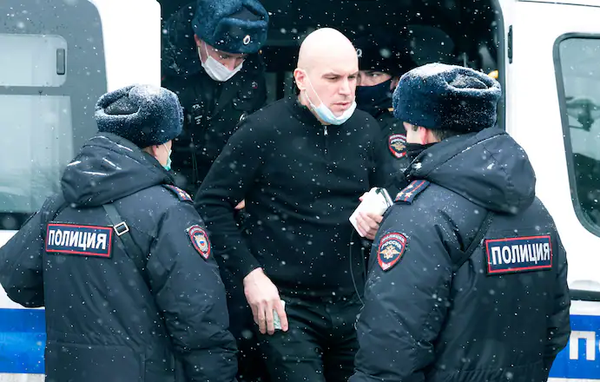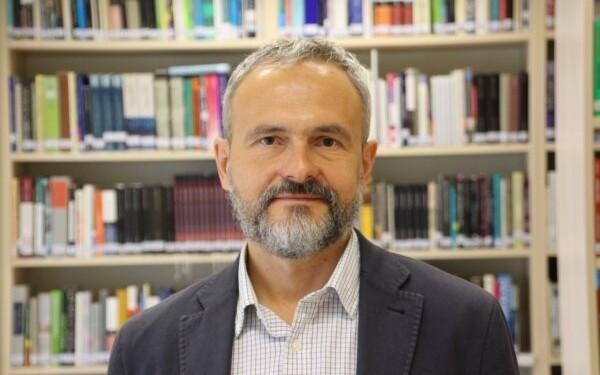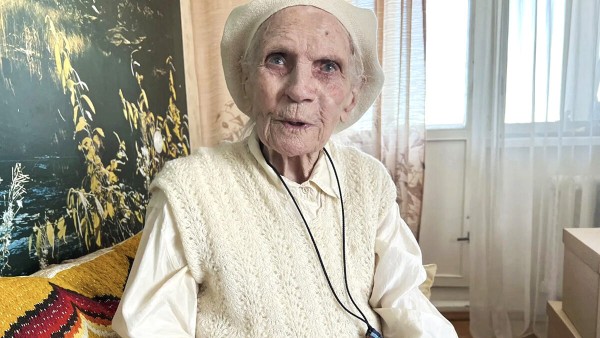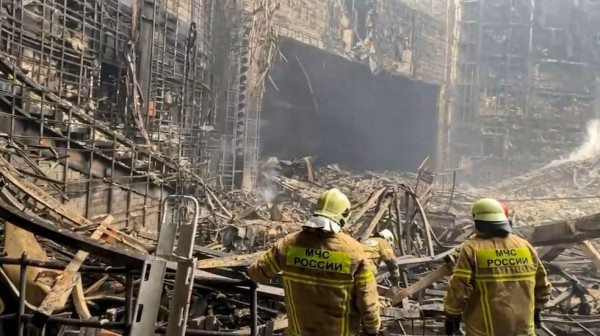
A man stands near a police bus after he was detained in Moscow on March 13, along with nearly 200 participants of a forum of independent members of municipal councils. (Victor Berezkin/AP)
This week, Moscow courts continued to hand out administrative sentences to participants of the recent forum of opposition lawmakers that was broken up by police. Every one of its 194 delegates — including dozens of incumbent municipal legislators from across Russia, as well as prominent opposition figures invited as guest speakers — was taken into police custody. In every case, the charge was identical: “participating in the activities of an undesirable organization” under the recently added Article 20.33 of Russia’s Code of Administrative Offenses. The copy-pasted indictments by Moscow prosecutors claimed that the forum had been organized by a United Kingdom-based organization called the Open Russia Civic Movement, led by exiled former oil magnate and Putin opponent Mikhail Khodorkovsky.
Except it wasn’t — and, in fact, could not have been, for the simple reason that no such organization ever existed. A quick search in the U.K. register confirms this. There was a Russian political movement called Open Russia (indeed led by Khodorkovsky), but, by the very logic of the law targeting foreign “undesirable organizations,” it could not have been affected by the government’s designation, as was confirmed by the prosecutor general’s office itself.
Advertisement / Reklaam
Advertisement / Reklaam
But it doesn’t end there. The Russia-based Open Russia movement was officially dissolved in March 2019, so even its most ardent supporters could not have “participated in its activities” two years later.These and other hard facts were presented to Moscow’s court No. 299 on Tuesday when, accompanied by my lawyer Vadim Prokhorov — one of Russia’s top civil law attorneys — I was brought before Judge Natalia Shapovalova. Prokhorov and I made the obvious point that peaceful political activity by Russian citizens in Russia — guaranteed by our Constitution and by the European Convention on Human Rights — cannot form a corpus delicti by definition. We also pointed to the fact that materials presented by the police and prosecutors did not contain a single piece of evidence linking the municipal forum with the (nonexistent) Open Russia Civic Movement.
Case closed, charges dismissed? Not in Putin’s Russia. And here is where the trial acquired a distinctly Kafkaesque feeling.
First, the judge denied every one of our motions, including the motions to call the arresting police officers to testify and to allow journalists and spectators (who were waiting outside) into the courtroom. Prokhorov asked that she make this closed status of the hearing official by declaring it to be in camera — which would have been a grave violation of the principle of judicial openness that is only allowed by Russian law in rare exceptional circumstances. But she didn’t relent on that point, either.
https://www.washingtonpost.com...
























